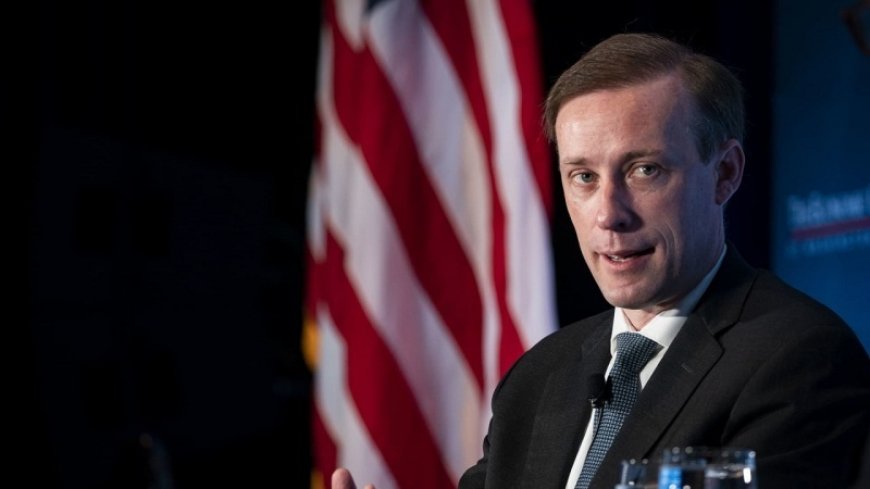"America’s Waning Influence: A Reckoning for Global Hegemony"
An increasingly uncomfortable reckoning is looming for the United States in its capacity as the undisputed global leader. Jake Sullivan, the White House National Security Advisor, recently acknowledged a reality that many have already acknowledged: the era of American hegemony has concluded.

An increasingly uncomfortable reckoning is looming for the United States in its capacity as the undisputed global leader. Jake Sullivan, the White House National Security Advisor, recently acknowledged a reality that many have already acknowledged: the era of American hegemony has concluded.
Sullivan declared, "The post-Cold War era is over," in a candid interview with *The New York Times*. The period of American hegemony that spanned the 1990s and early 2000s has concluded. He also noted that the Biden administration inherited a world in which U.S. dominance was no longer the primary factor influencing global affairs.
Although blunt, this admission is not entirely unexpected. The United States has possessed an unparalleled global influence, both militarily and politically, in the years following the Soviet Union's collapse. Nevertheless, the waning of U.S. leadership in international institutions and the rise of new global powers such as China and Russia to assert their own influence have made it increasingly evident that Washington's unipolar world is a thing of the past. Even countries that have historically supported the United States, such as certain European nations, are reassessing their foreign policy objectives in response to shifting global dynamics.
At present, the United States is confronted with intricate international crises, including the ongoing conflict in Gaza. Sullivan's remarks are relevant to this context. The White House has staunchly defended its stance, despite the fact that numerous international actors, such as the United Nations and several European governments, have condemned Israel's actions as disproportionately striking civilian infrastructure. Sullivan reiterated this stance when he defended the ongoing U.S. military assistance to Israel, asserting, "We are unable to halt the supply of weapons to Israel."
The U.S.'s moral and political leadership on the global stage is called into question by his defense of the Biden administration's decision to provide armaments to Israel in the face of extensive civilian casualties. Despite the ample evidence of civilian suffering, the United States' unwavering support for Israel in the Gaza conflict—despite its continued portrayal as a beacon of human rights—raises significant doubts about the credibility of this assertion. Sullivan and other officials persist in echoing Israel's assertions that Hamas is exploiting civilian facilities, such as hospitals and schools, for military purposes, despite the fact that over 70% of the casualties in Gaza are women and children, as indicated by a United Nations report. Nevertheless, the U.N. and a variety of U.S. and Israeli officials have overwhelmingly rejected this narrative, which has further complicated Washington's position.
The consequences of this continuous assistance are significant. One the one hand, the United States maintains its strong relationships with Israel, a critical ally in the Middle East. Conversely, it may result in the further alienation of international allies and the escalation of domestic divisions, as a growing number of Americans, particularly those in the younger generation, are becoming more critical of the United States' foreign policy.
Jake Sullivan's statements regarding the demise of American hegemony are not merely an acknowledgment of global transformations; they also serve as a cautionary tale for the United States as it negotiates a world in which its influence is no longer assured. The United States will be compelled to reevaluate its foreign policy and its broader role in influencing the future of international relations as power becomes more diffuse and global challenges become more intricate. In a multipolar world, dominance is no longer a luxury that can be presumed; it must be worked for. The question of whether America can acclimate to this reality while maintaining its values will determine the nation's position in the world for the foreseeable future.













































